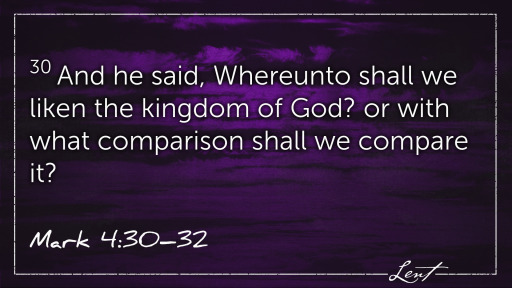WE WERE MADE TO GROW

THE PARABLE OF THE MUSTARD SEED
INTRODUCTION
A young English boy was called “Carrot Top” by other students and given “little chance of success” by some teachers. He ranked third lowest in class: grade averages for English was 95%, history 85%, mathematics 50%, Latin 30%.
His teacher’s report reads: “The boy is certainly no scholar and has repeated his grade twice. He has also a stubborn streak and is sometimes rebellious in nature. He seems to have little or no understanding of his schoolwork, except in a most mechanical way. At times, he seems almost perverse in his ability to learn. He has not made the most of his opportunities.”
Later, the lad settled down to serious study and soon the world began to hear about Winston Churchill.
SMALL STARTS
The final parable of this chapter concerns the contrast between the smallest of seeds (the mustard seed, proverbially regarded as the smallest of all seeds) and the much larger plant that grows from it. The kingdom may have a small beginning; it may be overlooked by all but the most discerning; but its growth will eventually result in something that cannot be overlooked. That which is hidden now will eventually be revealed (restating 4:21–22).
This parable stands alongside all the other material in this chapter in its central message: present smallness and hiddenness notwithstanding, the kingdom will someday be revealed to be the greatest. At present there is need for much discernment and trust. Some day all things will be made clear
ITS HARD TO BE BIG WHEN LITTLE GOT YOU
IF YOU SOW, IT WILL GROW
BIG FOR WHAT?
The reference to birds nesting or finding shelter under its shade emphasizes the large size of the full-grown garden shrub. In Mark, Jesus does not call it a “tree,” and the Greek text does not necessarily mean that birds build nests in its branches (as in NRSV). These features of Matthew’s and Luke’s versions carry additional meanings not necessarily taught in Mark (TBC, below).
